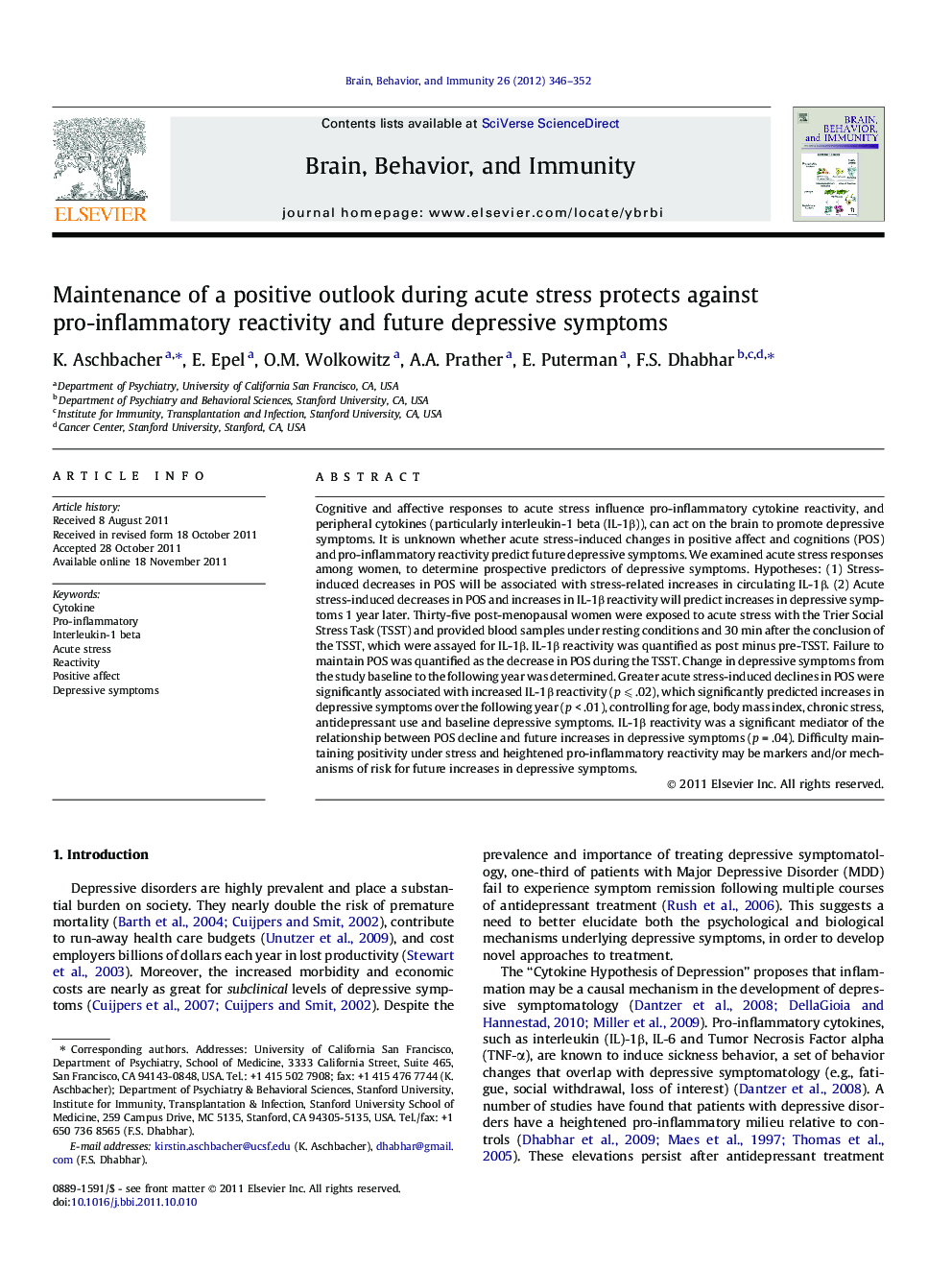| Article ID | Journal | Published Year | Pages | File Type |
|---|---|---|---|---|
| 922257 | Brain, Behavior, and Immunity | 2012 | 7 Pages |
Cognitive and affective responses to acute stress influence pro-inflammatory cytokine reactivity, and peripheral cytokines (particularly interleukin-1 beta (IL-1β)), can act on the brain to promote depressive symptoms. It is unknown whether acute stress-induced changes in positive affect and cognitions (POS) and pro-inflammatory reactivity predict future depressive symptoms. We examined acute stress responses among women, to determine prospective predictors of depressive symptoms. Hypotheses: (1) Stress-induced decreases in POS will be associated with stress-related increases in circulating IL-1β. (2) Acute stress-induced decreases in POS and increases in IL-1β reactivity will predict increases in depressive symptoms 1 year later. Thirty-five post-menopausal women were exposed to acute stress with the Trier Social Stress Task (TSST) and provided blood samples under resting conditions and 30 min after the conclusion of the TSST, which were assayed for IL-1β. IL-1β reactivity was quantified as post minus pre-TSST. Failure to maintain POS was quantified as the decrease in POS during the TSST. Change in depressive symptoms from the study baseline to the following year was determined. Greater acute stress-induced declines in POS were significantly associated with increased IL-1β reactivity (p ⩽ .02), which significantly predicted increases in depressive symptoms over the following year (p < .01), controlling for age, body mass index, chronic stress, antidepressant use and baseline depressive symptoms. IL-1β reactivity was a significant mediator of the relationship between POS decline and future increases in depressive symptoms (p = .04). Difficulty maintaining positivity under stress and heightened pro-inflammatory reactivity may be markers and/or mechanisms of risk for future increases in depressive symptoms.
► We examine how a positive outlook changes under acute stress. ► We also quantify acute stress-induced change in pro-inflammatory interleukin-1β. ► Loss of a positive outlook is associated with greater pro-inflammatory reactivity. ► Greater pro-inflammatory reactivity predicts future depressive symptom increases. ► These data suggest a need for integrative approaches to treatment.
